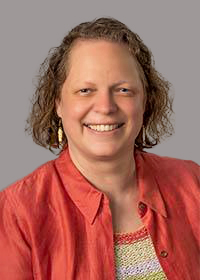Start a conversation about family breast cancer history

Talk with your loved ones about getting screened for cancer and reducing your risks together.
You might know that your risk for breast cancer goes up if someone in your family has or had breast cancer. The National Institutes of Health estimates from 5-10% of breast cancer cases are tied to family history.
Now is a great time to start a conversation with loved ones about your family history and what you can do to reduce your risks for breast cancer together.
Why have the conversation about breast cancer in your family
Breast cancer happens to a lot of people. It’s one of the most common cancers for women in the U.S., second only to skin cancer. And if caught early, it’s treatable.
The sooner you talk with your family, the sooner you—and your loved ones—can take action to lower your risks and potentially detect cancer early.
It can be an uncomfortable topic for some families so it’s helpful to keep in mind why you’re bringing the subject up—whether it’s concern for:
- the health of those you’re talking to.
- your own personal health.
- the health of your child(ren) or grandchild(ren) or others from your family’s younger generation.
They’re all good reasons to care enough to ask.
How to start talking about breast cancer in family history
Family situations vary. People who feel close to family may have little trouble talking about the topic. Others may find that distance (either physical or emotional), poor health or age-related memory loss, can make it difficult.
Think about who you’d want or need to talk with among those closest to you—mother, grandmother, aunts or sisters. A father, brother, uncle or others might also be helpful, if they’re available, in reasonably good health and willing to talk.
If you see or phone your family often, decide ahead of time when you want to bring up the topic. If you rarely have contact, reach out in a way that is comfortable to you and them and if possible, plan to talk about other topics, not just breast cancer.
How the conversation goes will likely depend on how close you feel to them or how well you know each other. Just be aware and respect the other person’s feelings.
What you say or ask may depend on who you’re asking, what you know and your comfort level. But here are some ideas for getting the conversation going:
- My doctor asked me recently if anyone in my family has had breast cancer. Do you know?
- I’ve been meaning to ask about (name or relative). Didn’t she/he have breast cancer? Can you share more about what happened?
- How old were they when they had it?
- How did they do with treatment?
- Have you had a mammogram?
- I get a mammogram every year. How often do you get yours?
- I’m planning to get my first mammogram soon. Do you have any advice?
- I’m so glad mammograms are covered by most insurance. Do know if yours covers mammograms?
What to do after talking family breast cancer history
Finding out more about your family history will help you make more informed decisions about your own risks and care. To help you remember details, write down for yourself and your doctor any new information you learned during your conversation. You can use My PeaceHealth to keep a record of these notes.
Family history can also help you offer guidance to your daughter(s), granddaughter(s) or other young members of your family when they’re old enough.
And these health-related conversations might also help you and your loved ones make decisions about what you can do together now to reduce your risk for breast cancer.
If you’re due for a mammogram, consider scheduling it on the same day or in the same month as a loved one. Then do something you both enjoy—either virtually or in person.
Getting and staying healthy is something families can help each other do. Having a conversation is a good place to start.
Family conversations — if you have breast cancer
“If you have been diagnosed with breast cancer, it’s important to have a conversation with your family,” according to Stephanie Roberts, BS, MPAS, PA-C, who cares for patients at the PeaceHealth Cancer Center in Longview, Washington.
“Patients who try to go through treatment alone don’t usually do as well as those who rely on a strong support system,” she says.
If you’ve been diagnosed with breast cancer, here are some things to keep in mind as you talk with family:
- Set expectations that you won’t know everything about your treatment—it could take time to work out the details.
- Choose one member of the family who would be willing to keep others informed about your treatment—you might find it exhausting to share details with everyone yourself.
- Share the timeline of your treatment when you know it; your loved ones will appreciate knowing what to expect.
- Set boundaries about the type of help you could use—well-meaning loved ones can sometimes do too much.
- Encourage close family members (e.g., sisters, nieces, cousins, etc.) to get screened for breast cancer, when it’s appropriate for their age.
Keep in mind that family doesn’t include just blood relatives, notes Roberts. “It can be anyone you consider to be part of your support team—especially if you don’t have relatives living near you.”






